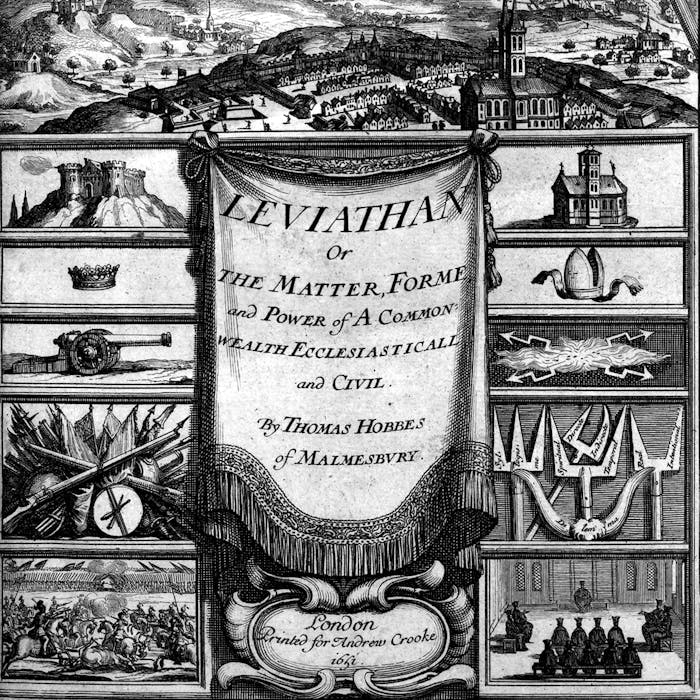
Nasty, brutish and short
Though the phrase is often quoted as a description of the life of our ancestors, especially in the Stone Age, 'Nasty, brutish and short' is actually taken from Thomas Hobbes' book Leviathan, published in 1651, and a reference to contemporary events.
The fuller quotation of this phrase is even less appealing - "solitary, poor, nasty, brutish, and short".
Hobbes was writing in response to (and during) the English Civil War in a plea for strong, undivided government. Without this, he said, the natural state of mankind is as a "warre of every man against every man". It was an appeal against war and disorder.
Thomas Hobbes was an English philosopher, considered to be one of the founders of modern political philosophy. He is best known for his 1651 book Leviathan, in which he expounds an influential formulation of social contract theory.He also contributed to a diverse array of other fields, including history, jurisprudence, geometry, the physics of gases, theology, and ethics, as well as philosophy in general.
Hobbes believed that humans are all basically selfish, driven by fear of death and the hope of personal gain. All seek power over others. He thought that only the rule of law and the threat of punishment keep our baser instincts in check.
The consequence of this, he argued, was that if society broke down and the people had to live in what he called ‘a state of nature’, without laws or anyone with the power to back them up, everyone would steal and murder to carry on living. In a world of scarce resources, it could actually be rational to kill other people before they killed you. In Hobbes’ memorable description, life outside society would be ‘solitary, poor, nasty, brutish, and short’.’
Further reading
Links to external websites are not maintained by Bite Sized Britain. They are provided to give users access to additional information. Bite Sized Britain is not responsible for the content of these external websites.
